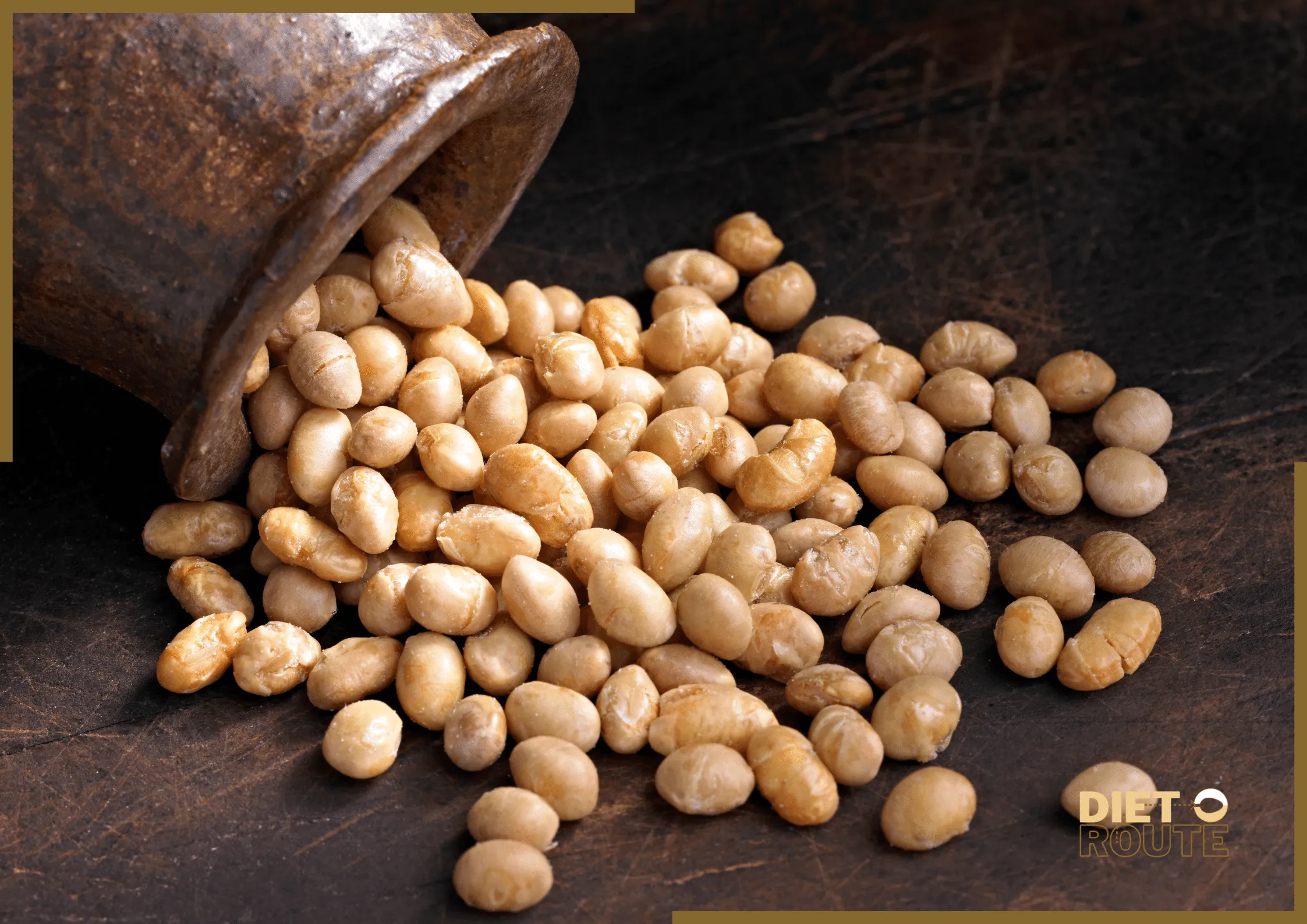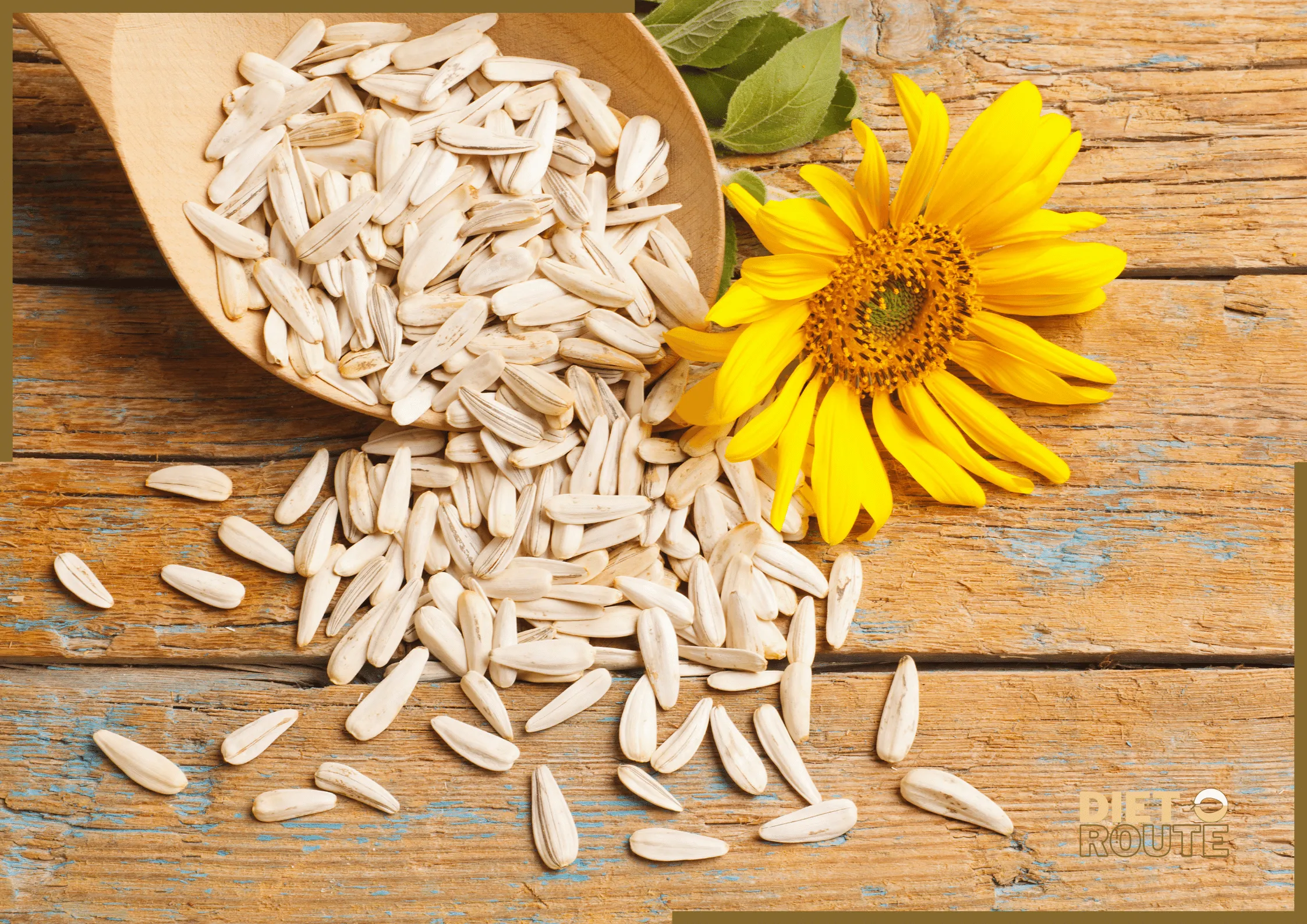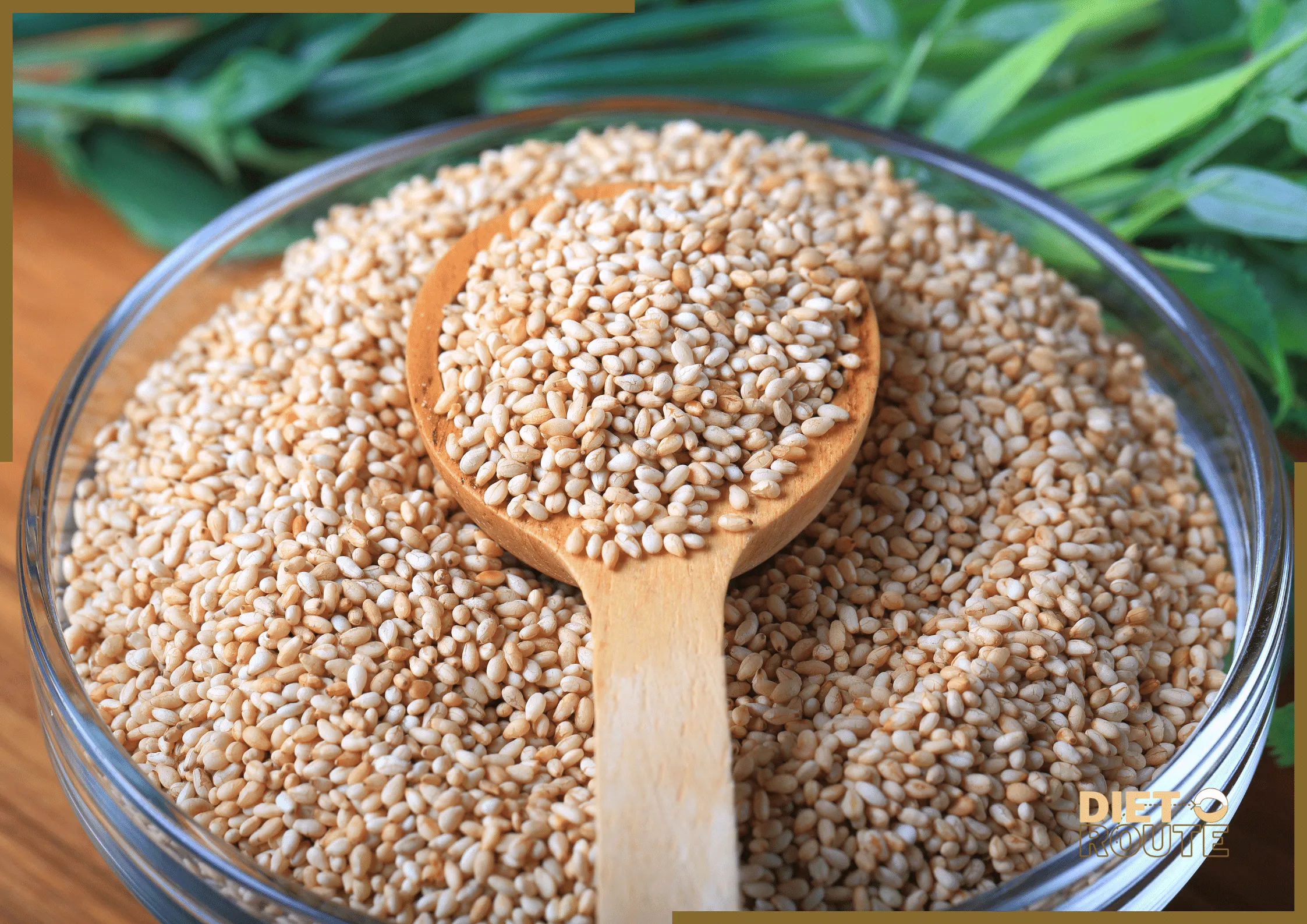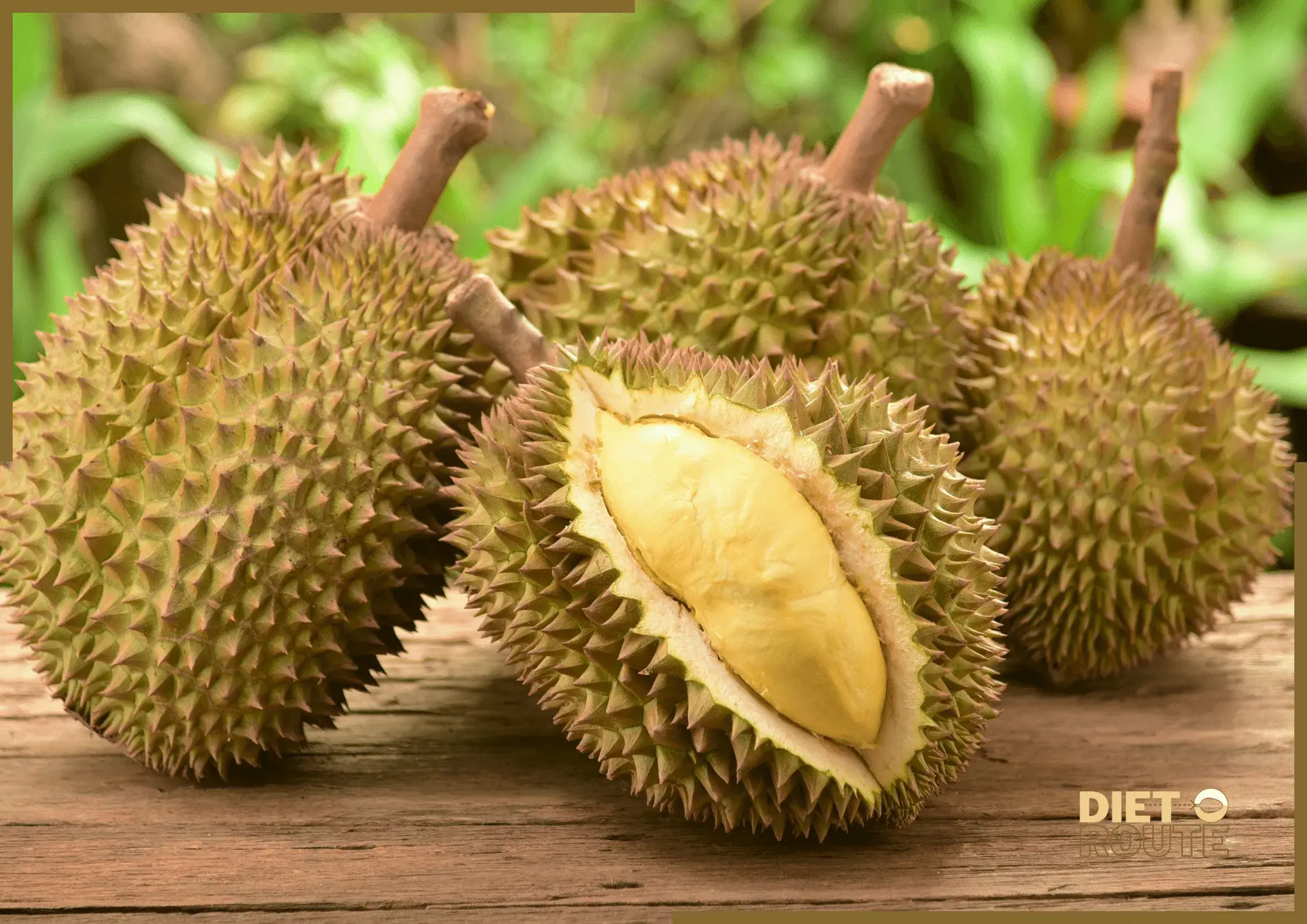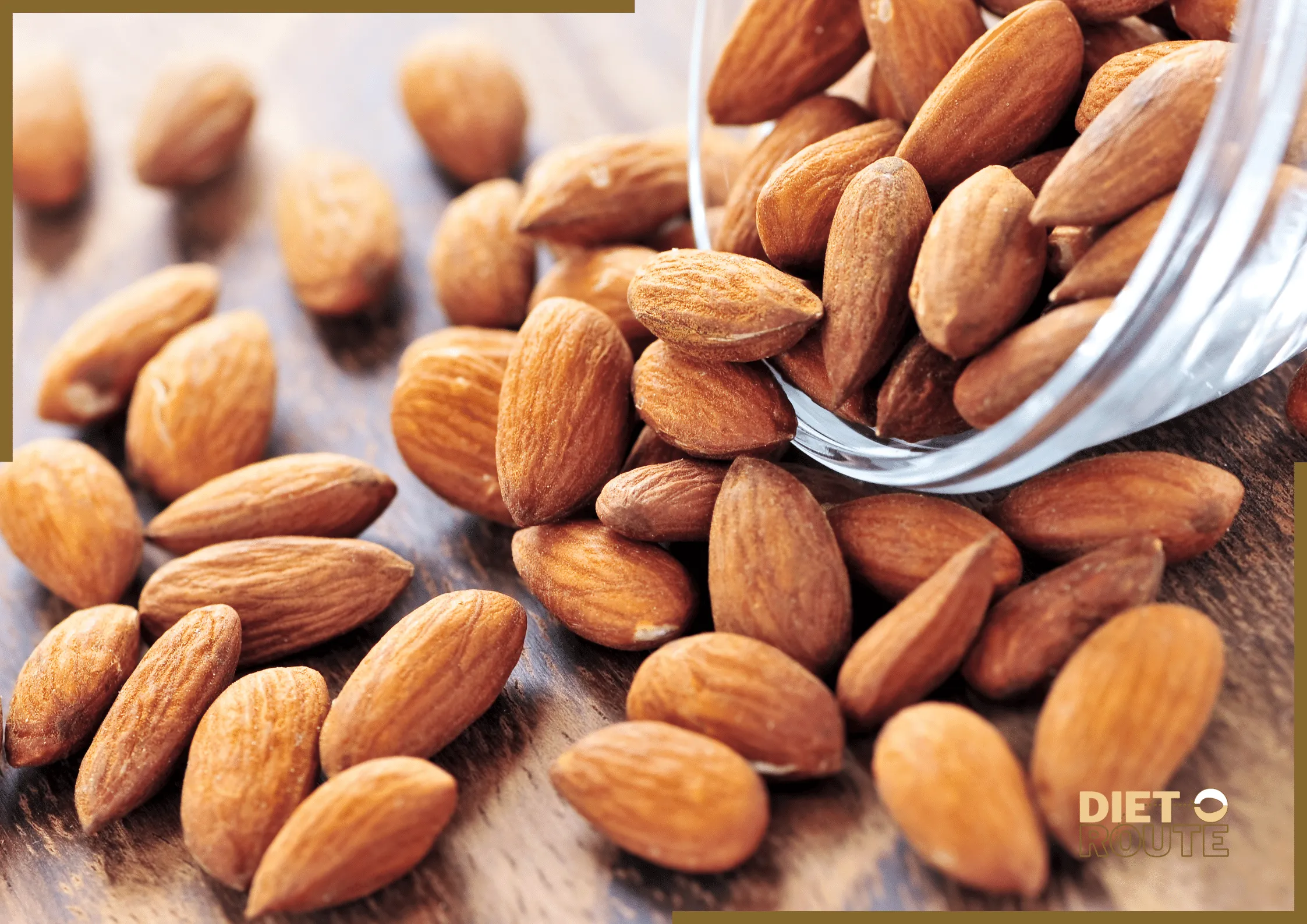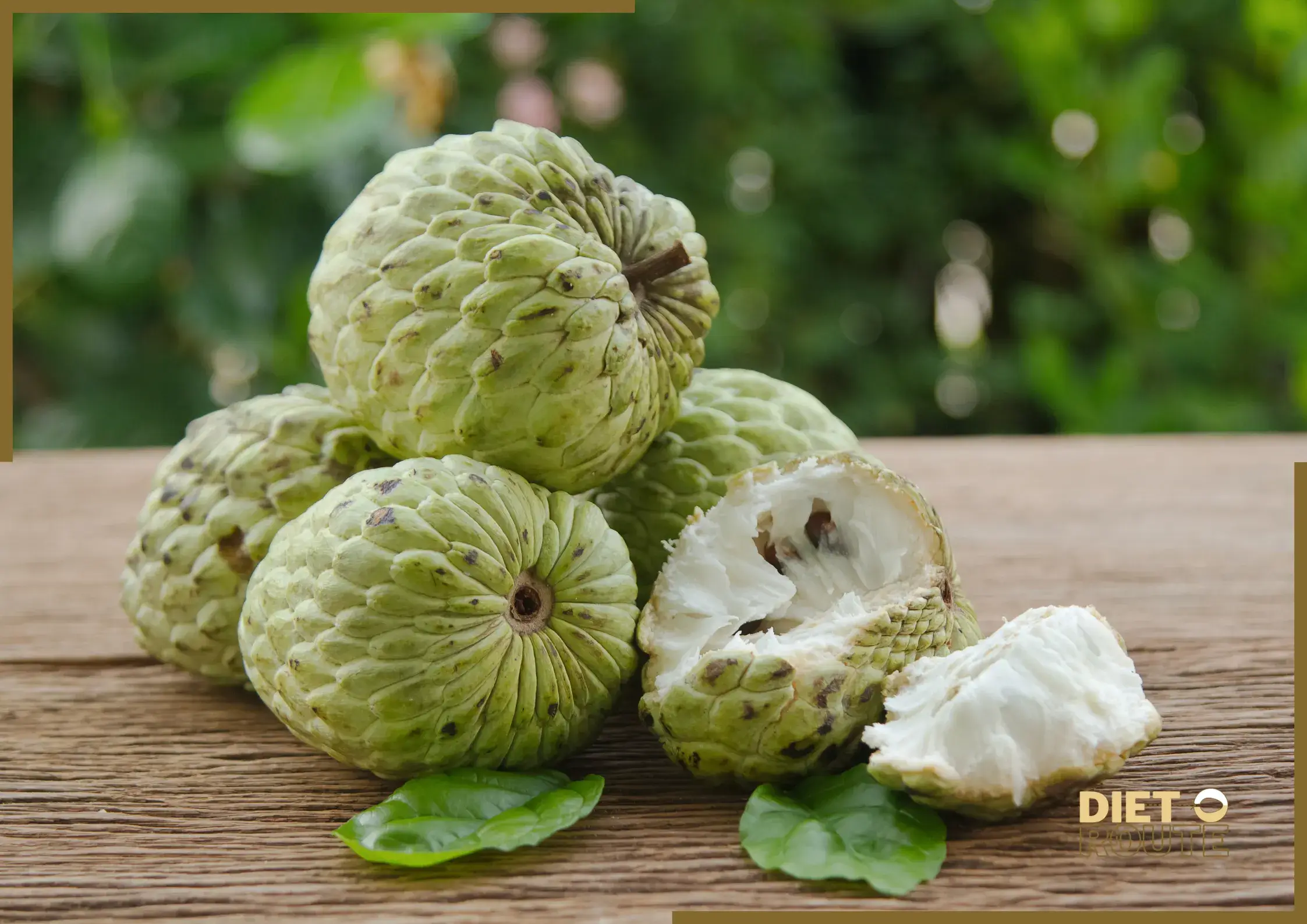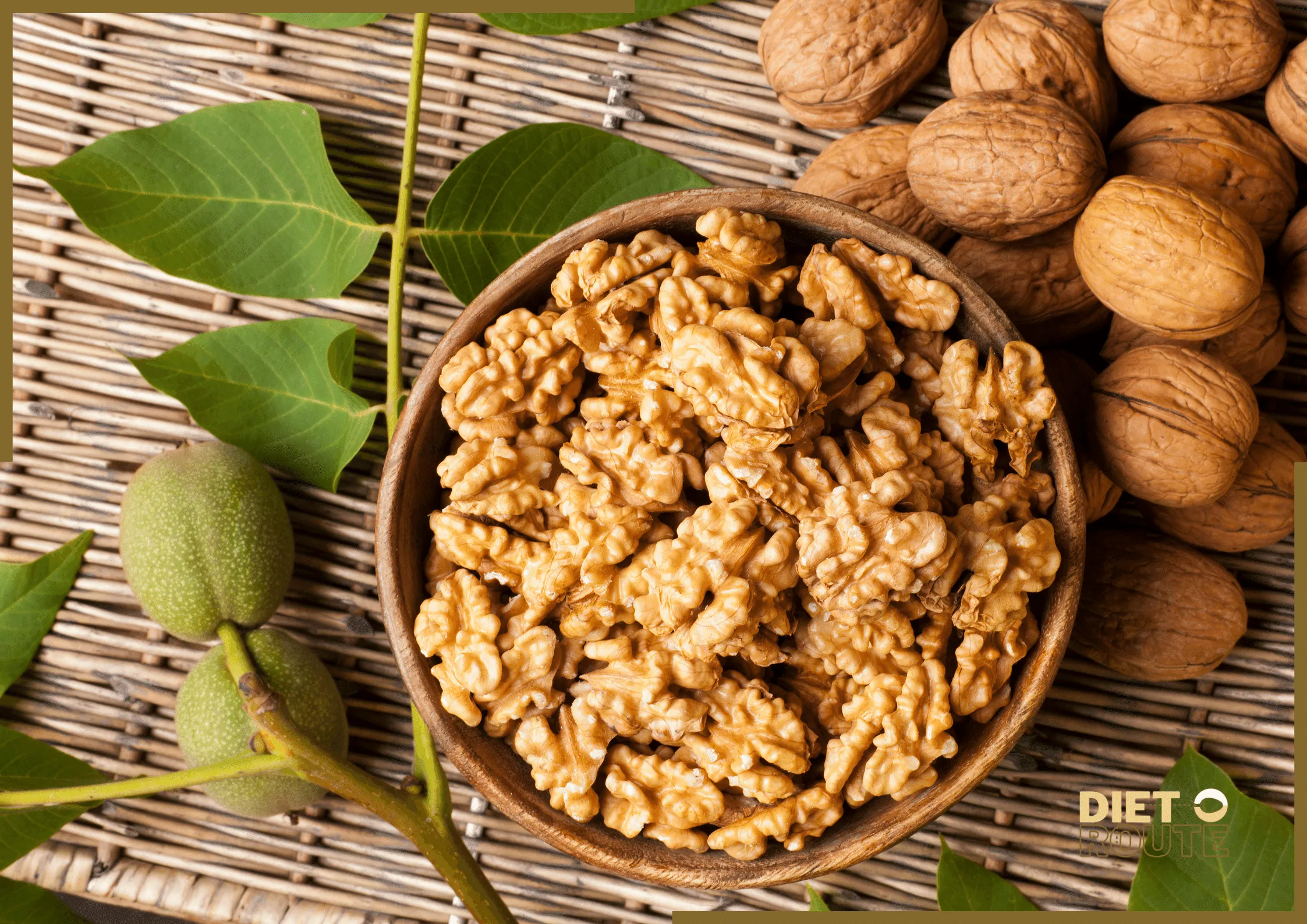Table of Contents
Introduction
Soy nuts are widely consumed as snacks due to their crispy texture and distinctive taste. In addition to being delicious, these treats provide numerous health benefits. Discover the nutritional value in our detailed guide. We provide a comprehensive breakdown of their nutrients in an easy-to-read table, explore their advantages and disadvantages, answer common questions, and emphasize their importance in a balanced diet.
Nutritional Value Approximately 100g
The values provided are approximate can vary depending on the size and ripeness.
| Nutrient | Amount | % Daily Value |
| Calories | 471 | 24% |
| Total Fat | 20.6 g | 32% |
| Saturated Fat | 3.4 g | 17% |
| Trans Fat | 0 g | – |
| Cholesterol | 0 mg | 0% |
| Sodium | 2 mg | 0% |
| Potassium | 1797 mg | 51% |
| Total Carbohydrate | 30.2 g | 10% |
| Dietary Fiber | 15.6 g | 62% |
| Sugars | 3.9 g | – |
| Protein | 36.5 g | 73% |
| Vitamin C | 0 mg | 0% |
| Calcium | 277 mg | 28% |
| Iron | 6.17 mg | 34% |
| Magnesium | 280 mg | 70% |
| Phosphorus | 704 mg | 70% |
*Percent Daily Values (% DV) are based on a 2,000-calorie diet.
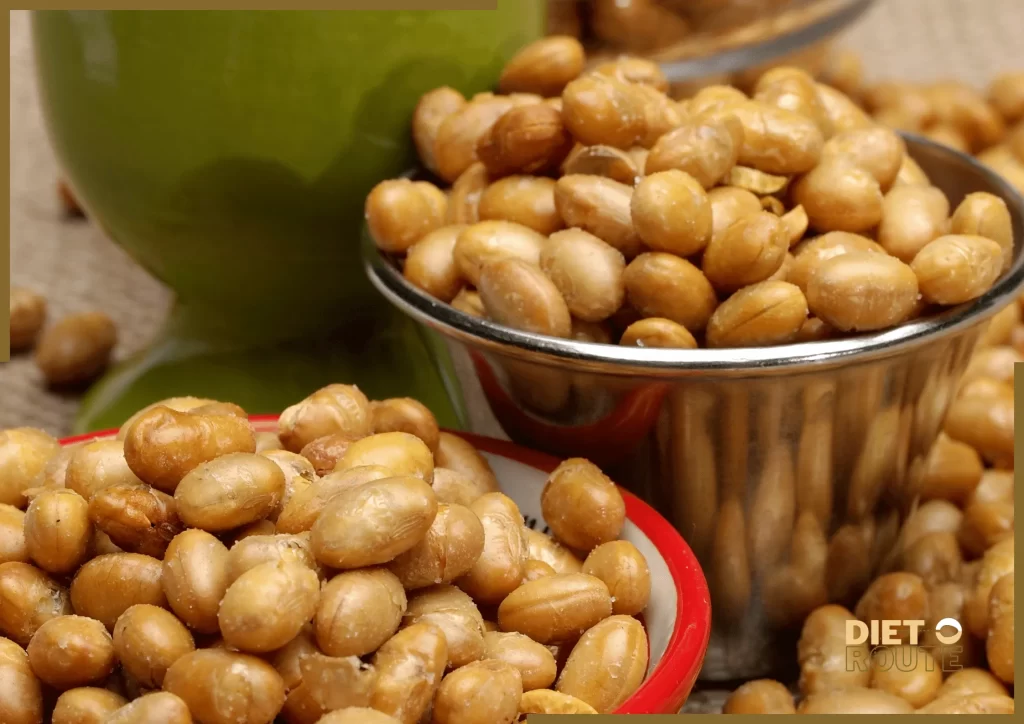
Pros
1.Soy nuts are a great source of plant-based protein, making them a perfect choice for those following a vegetarian or vegan diet.
2. They are a great source of heart-healthy unsaturated fats that can aid in reducing bad cholesterol levels and supporting cardiovascular health.
3. These foods are nutrient-dense and contain essential nutrients such as fiber, iron, magnesium, and potassium.
4. These nuts are beneficial for bone health as they contain calcium and magnesium, which can help in improving bone strength and density.
5. They are rich in antioxidants, particularly isoflavones, which may provide protection against some chronic illnesses due to their antioxidant properties.
Cons
1.Soy nuts may pose potential allergenicity to individuals with soy allergy. It is advisable to exercise caution and avoid consuming soy nuts if you have a known soy allergy.
2. These nuts are a nutritious food option, but they are also high in calories. Therefore, it is crucial to practice portion control, particularly for those who are mindful of their calorie consumption.
Frequently Asked Questions (FAQs)
-
1. Is dietary fiber adequately provided by soy nuts?
They are a great dietary fiber source that can help with digestion and promote satiety.
-
2. Do soy nuts aid in weight management?
Incorporating these nuts into your diet can aid in weight management as they are rich in protein and fiber, which can help regulate your appetite.
-
3. Can individuals with gluten intolerance consume soy nuts?
These nuts are a great gluten-free snack option for people with celiac disease or gluten intolerance since they are naturally gluten-free and provide excellent nutrition.
-
4. Do soy nuts have cholesterol-lowering benefits?
The unsaturated fats have potential benefits for heart health by reducing bad cholesterol levels.
-
5. Is soy nuts a reliable plant-based iron source for a healthy diet?
They are a valuable plant-based source of iron, crucial for the production of red blood cells and oxygen transportation within the body.
-
6. What are the possible side effects of eating soy nuts?
These nuts may cause digestive discomfort or allergic reactions in some people. In case of any negative reactions, stop consuming and seek advice from a medical expert.
-
7. Is it safe to eat soy nuts while pregnant?
They are safe to eat during pregnancy as a part of a well-balanced diet. However, it is recommended to seek individual advice from a healthcare professional.
-
8. What is the best way to store soy nuts for optimal freshness?
For optimal freshness and to prevent spoilage, it is recommended to store these nuts in a cool and dry place in an airtight container.
-
9. Are soy nuts suitable for a diabetic diet?
They are a great snack choice for people with diabetes due to their low glycemic index and high protein and fiber content, making them a healthy option.
-
10. Are soy nuts suitable for a vegan diet?
These nuts make for a great snack option for vegans as they offer crucial nutrients and plant-based protein.
In a Nut Shell
Soy nuts are a healthy and convenient snack choice that provides numerous health benefits. These nuts are a great supplement to a well-rounded diet due to their high protein and fiber content, as well as essential minerals. It is crucial to consider portion sizes and possible allergies for optimal health. By adding these nuts to your diet in moderation, you can benefit from their nutritional advantages and promote your overall health.
